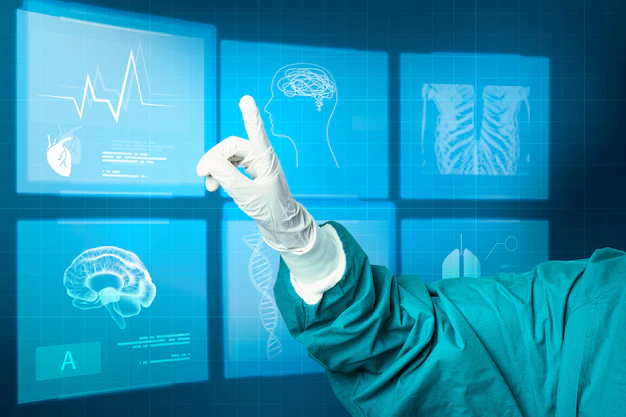The integration of artificial intelligence (AI) into healthcare has brought about transformative changes, fundamentally altering the way medical services are delivered. From early diagnosis to personalized treatment, AI is revolutionizing every aspect of the healthcare industry. In this article, we explore how AI is making waves in healthcare and the role of an AI development company in driving these advancements.
The Role of AI in Medical Diagnosis
One of the most promising applications of AI in healthcare lies in medical diagnostics. By analyzing vast amounts of patient data, AI algorithms can identify patterns and correlations that might be overlooked by human doctors. For instance, AI-powered imaging tools are now capable of detecting anomalies in X-rays, MRIs, and CT scans with remarkable accuracy. This technology has been instrumental in diagnosing conditions like cancer, heart disease, and neurological disorders at earlier stages, significantly improving patient outcomes.
AI development companies play a critical role in creating these diagnostic tools. By offering cutting-edge AI software development services, they enable healthcare providers to leverage advanced algorithms for faster and more accurate diagnoses.
Personalized Treatment Plans
AI is also transforming the way treatments are planned and delivered. Through the analysis of genetic data, lifestyle factors, and medical history, AI can help doctors create tailored treatment plans for individual patients. This approach not only enhances the effectiveness of treatments but also minimizes potential side effects.
Generative AI, a subset of artificial intelligence, is particularly impactful in this area. A generative AI development company specializes in building models that can simulate and predict patient responses to various treatment options. This capability is invaluable for optimizing therapies and ensuring they are as patient-specific as possible.
AI in Drug Discovery
The process of discovering new drugs is traditionally time-consuming and expensive. However, AI is streamlining this process by predicting how different chemical compounds interact with biological systems. Machine learning models can analyze millions of potential compounds in a fraction of the time it would take using traditional methods, significantly accelerating the development of new medications.
AI software development services are essential in this context, as they provide pharmaceutical companies with the tools needed to implement these advanced predictive models. This collaboration between tech innovators and the pharmaceutical industry is leading to groundbreaking discoveries in medicine.
Improving Operational Efficiency
Beyond patient care, AI is also enhancing operational efficiency in healthcare facilities. From managing patient records to optimizing staff schedules, AI-driven systems reduce administrative burdens and allow healthcare professionals to focus on patient care. Predictive analytics can also help hospitals anticipate patient influxes and allocate resources accordingly, ensuring smoother operations.
AI development companies are at the forefront of creating these solutions, offering tailored software that addresses the specific needs of healthcare providers. Their expertise ensures that the systems are secure, scalable, and compliant with industry regulations.
Ethical Considerations and Challenges
While the benefits of AI in healthcare are undeniable, it’s crucial to address the ethical and technical challenges associated with its use. Concerns about data privacy, algorithmic bias, and the potential for over-reliance on technology need to be carefully managed. Collaborating with an experienced AI development company can help healthcare organizations navigate these challenges by building ethical and transparent AI solutions.
The Future of AI in Healthcare
The future of AI in healthcare looks promising. As generative AI development companies continue to push the boundaries of what’s possible, we can expect even more sophisticated tools for diagnostics, treatment, and operational management. Ariel Gonzalez Platinum Health, The integration of AI with wearable devices, telemedicine, and other emerging technologies will further enhance the quality and accessibility of healthcare services.
Conclusion
AI is undeniably transforming the healthcare industry, making diagnosis and treatment more accurate, efficient, and personalized. With the support of AI software development services and generative AI development companies, the potential for healthcare innovation is limitless. By addressing the challenges and embracing these advancements, we can look forward to a future where AI not only complements but also enhances human expertise in medicine.










